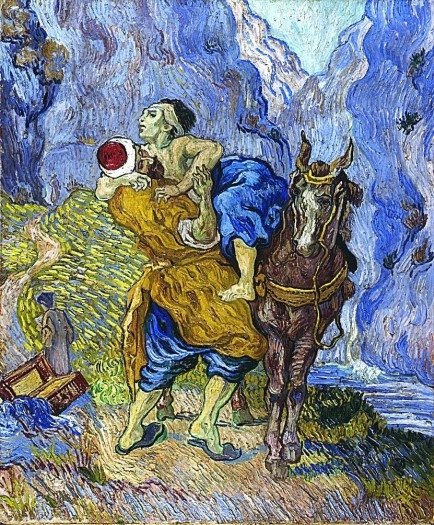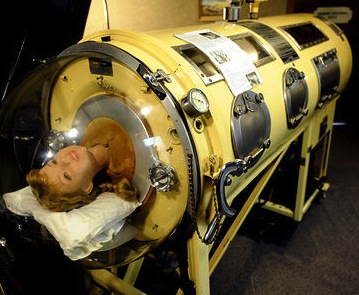 Impossible mentor,
Impossible mentor,  discipleship
discipleship  Tuesday, May 5, 2015 at 03:00PM
Tuesday, May 5, 2015 at 03:00PM  I knew it was a mistake as soon as the words left my mouth. Sitting in my office was a young man who had been cheated out of $300 by someone else in the church. Both men attended our church, and one guy really did owe the other $300. But the guilty party wasn’t in the office, the other guy was—and he was full of anger and frustration because of his loss. That’s when I made my hasty suggestion:
I knew it was a mistake as soon as the words left my mouth. Sitting in my office was a young man who had been cheated out of $300 by someone else in the church. Both men attended our church, and one guy really did owe the other $300. But the guilty party wasn’t in the office, the other guy was—and he was full of anger and frustration because of his loss. That’s when I made my hasty suggestion:
“You could forgive him his debt,” I suggested. “Jesus told us to do just that.” Big mistake.
“Well I’m not Jesus!” he shouted back at me. End of discussion, end of ministry time, end of opportunity to take the yoke Jesus offers. It was my mistake. Not for suggesting a perfectly Biblical remedy to his anger and frustration, but for expressing the solution in such a way that he would consider it impossible.
It’s impossible to be like Jesus, isn’t it? Jesus was perfect. He led a sinless life. He was God-come-to-earth and his life sets the bar impossibly high for any of us.
I believe that the central problem in nurturing followers of Jesus (at least in North America) is our view of Jesus as the Impossible Mentor. It’s a paradox: nearly everyone is willing to acknowledge Jesus as a worthy role model, but almost no one seriously believes it is possible to live up to his example. Our esteem for Jesus’s life of obedience to the Father and our desire to be “just like Jesus” does battle with the deep-seated notion that it is impossible to be like him. Who would choose a mentor who is impossible to imitate?
Some passages in the Scripture inspire fill us with confidence. Some light the fires of hope in our hearts. Other passages seem too idealistic, too fantastic to find their way into even our dreams, much less our daily lives, like this one: “For those God foreknew he also predestined to be conformed to the likeness of his Son, that he might be the firstborn among many brothers.” (Romans 8: 29) Is this possible? Does God really look at each one of us and see a destiny in which we look like Jesus?
Whatever our theological foundations regarding this passage we should all recognize that it is about God’s intention for each of one us: to become “conformed to the likeness of his Son.” Simply put God desires to have more children like Jesus. Jesus is God’s only begotten Son, but we become his sons and daughters by adoption. The destiny of those adopted into the family of God is that we, too, should bear the family likeness. That is: we will look just like Jesus.
In a conversation with a dozen young Christians this week, I asked them if they felt it was possible to live a life without sin for even one day. No takers. So I rephrased the question and asked if it is possible to go for an hour without sinning. Only one of them thought it was possible to stay within the will of God for a single hour. How can we be like Jesus (even in a small way) if these opinions hold us back? These questions are not academic. They go to the heart of our life “in Christ.” If our intuition tells us that following His example is impossible, for one day or even an hour, how can we have the confidence to pursue his vision for us?
The bottom line is that God has a greater vision for what is possible in our lives than we do. Perhaps the reason the Apostle Paul instructs us later in Romans to “be transformed by the renewing of your minds” is so we can see the possibilities of a life lived in harmony with Jesus. A practical, day-to-day, moment-by- moment harmony capable of generating the rest and peace he promises.
Let me encourage you this week to ponder the foundations of your commitment to be a disciple of Jesus. Here are a few suggestions for meditation and prayer:
• Is it possible to learn from him?
• If Jesus is my mentor, have I committed myself to failure with no possibility of success?
• What kind of Master would invite me to be his apprentice if he thought there was no possibility to follow in his footsteps?
The answers spoken from our heart will determine whether discipleship is possible.
EDITOR'S NOTE: The very first post that appeared at this blog, back in January 2009. It's also the opening pages of my book The Impossible Mentor: Finding Courage to Follow Jesus, available from Amazon.
Why not receive Students of Jesus in your inbox? Subscribe to our email newsletter and never miss a post.
 Thursday, September 20, 2012 at 12:02AM
Thursday, September 20, 2012 at 12:02AM Earlier this week I released my book, "The Impossible Mentor: Finding Courage to Follow Jesus." Here's a slice. If you like it, it's available in paperback, Kindle, and Nook versions. Just follow the link on the right side of the page.
 Imagine this scene: a man lies naked, hungry and cold. A stranger approaches and offers these words, “I wish you well. Be warm, and filled.” Then the stranger walks away. Now imagine the stranger who walked away was Jesus.
Imagine this scene: a man lies naked, hungry and cold. A stranger approaches and offers these words, “I wish you well. Be warm, and filled.” Then the stranger walks away. Now imagine the stranger who walked away was Jesus.
Unthinkable, right? Too many Christians possess just such an image of Jesus when it comes to the issue obedience. God wants us to obey his will. It’s good. It’s necessary. The problem is many of us see ourselves as incapable of obedience. We have failed too often. We find ourselves naked and cold, in desperate need. And into our helpless situation, we imagine that Jesus walks up to us and says, “be obedient” without offering any practical help.
Would the grace God demand from us something we cannot give? If we were “miserable sinners” before turning to Jesus, why does Jesus expect his followers to become obedient to his will? How do we become something other than “forgiven miserable sinners?” Some believers find themselves trapped in a Christian existence of forgiveness, more sin, and more forgiveness.
The good news is that God’s grace does something more than say, “Be warm and filled.” Jesus calls us obey, but he does not leave us on our own. He demonstrated how to become the kind of follower who is not trapped in the forgive-sin again-forgive cycle.
The Jesus way of teaching believers how to obey is contained in the famous verses we call The Great Commission:
All authority in heaven and on earth has been given to me. Therefore go and make disciples of all nations, baptizing them in the name of the Father and of the Son and of the Holy Spirit, and teaching them to obey everything I have commanded you. And surely I am with you always, to the very end of the age. (Matthew 28: 18-20)
The Great Commission does not command obedience, but rather discipleship, which makes obedience possible. Discipleship is God’s plan to grow in obedience. Jesus breaks discipleship to two functions--immersing believers in the three revealed identities of God (Father, Son, and Holy Spirit) and instructing disciples in how to obey everything he commanded. To separate obedience from teaching how to obey would be the same as merely saying “Be warm and filled” to a naked homeless person, and Jesus wouldn’t do that.
The church, however, has fallen into the “Be warm and filled” fallacy. We attempt to “teach” obedience apart from relationship. In fact, obedience cannot be taught apart from relationship, it can only be demanded. Sitting in church listening to the demands of obedience usually results in guilt--a guilt incapable of producing fruit.
A better pattern is the family model. Good parents teach their children to obey in an atmosphere of mutual love and commitment. Fathers and mothers love their children, and children love their parents. Relationship and obedience grow side-by-side. The love felt by both parents and child provide the motivation for discipline from above and effort from below. Healthy families provide examples of obedience. Day-by-day children can witness whether true obedience lives in the household.
New life in Christ means the Father has provided a new family for each of us. We become a part of God’s household. If obedience resides in the house, it becomes a way of life--something for us to enter into, not something imposed from the outside. Obedience becomes the natural response of loving hearts. The family of God becomes the context for learning how to obey. Our obedience helps provide a setting for others to discover the way of life. This is one of the reasons that our obedience is not merely a personal matter. It’s also why some Christian mystics describe God as Father and the church as the mother of our obedience.
Could you be God’s means of grace is someone else’s life? If you respond to the Great Commission by making disciples, the answer is yes.
 Monday, September 17, 2012 at 12:02AM
Monday, September 17, 2012 at 12:02AM  If publishing a blog is an act of vanity, writing and publishing a book is megalomania. I am guilty on both counts. Saturday saw the release of my spiritual-formation book, The Impossible Mentor: Finding Courage to Follow Jesus. I want to tell you why I wrote it, and why I’m foolish enough to think you need to read it.
If publishing a blog is an act of vanity, writing and publishing a book is megalomania. I am guilty on both counts. Saturday saw the release of my spiritual-formation book, The Impossible Mentor: Finding Courage to Follow Jesus. I want to tell you why I wrote it, and why I’m foolish enough to think you need to read it.
Most Christians find Jesus a worthy role model while holding the conviction that no one could possibly live up to his example. That’s a problem. These conflicting ideas create division in our hearts and tension in our lives.
Discipleship and spiritual formation books come and go at the pace of diet and exercise manuals, with approximately the same results in the lives of believers. Deep down, in the secret place, we believe it’s impossible to obey what Jesus modeled and taught. This means we experience a cycle of good intentions and fresh starts, followed by frustration, guilt, and eventually resignation. Why would anyone choose a mentor who’s impossible to follow?
The Impossible Mentor explores how to take the yoke of discipleship Jesus offered in a manner that breaks the cycle of resolve-and-failure. Jesus actually invited us to imitate him and follow his example. He said, “learn from me, for I am gentle and humble in heart, and you will find rest for your souls. For my yoke is easy and my burden is light.” Yet most Christians think his ways and his example are distant and impossible to attain. If we try to become like our Master we find ourselves restless and burdened. Why would Jesus extend this invitation if there was no hope of following it?
The Impossible Mentor will give you the courage to follow, and experience the surprising joy of true transformation. Come join me in the journey.
 Thursday, May 10, 2012 at 12:02AM
Thursday, May 10, 2012 at 12:02AM  Like any writer, the narcissist in me believes you would enjoy a peek into the book I plan to release this fall, The Impossible Mentor. Advance praise for this book comes from my wife, my children, and the stray cat we keep feeding at the back door. They all agree: this will be the finest book on spiritual formation ever to come out of Campbellsville, Kentucky. Just because these witnesses are deeply biased doesn’t mean they are wrong, it just means they will buy the first thousand copies.
Like any writer, the narcissist in me believes you would enjoy a peek into the book I plan to release this fall, The Impossible Mentor. Advance praise for this book comes from my wife, my children, and the stray cat we keep feeding at the back door. They all agree: this will be the finest book on spiritual formation ever to come out of Campbellsville, Kentucky. Just because these witnesses are deeply biased doesn’t mean they are wrong, it just means they will buy the first thousand copies.
I've shared previews from the first three chapters. Today, the final preview, a bit from the opening of chapter four:
Chapter One: “I’m Not Jesus”
Chapter Two: “You’re Not, Either”
Chapter Three: "Paralyzed by Grace"
Chapter Four: “The Fellowship of Low Expectations”
Across the spectrum of Christian worship, our churches are filled with individuals who do not believe Christlikeness is possible. Individual believers have camped beside the river of God’s grace and drink daily of his forgiveness, unaware that this same grace can can provide spiritual transformation into Christlikeness. Discipleship, they suppose, is for those few super-saints called into the ministry.
Perhaps even more striking is the number of church leaders who have largely abandoned the task of making disciples. In the first years of my work as a pastor I attended a weekly breakfast “prayer meeting” of local pastors. I was looking for practical help in fulfilling my vision of equipping every believer to do the work of the ministry. Assembled were church leaders from a variety of faith traditions, both liturgical and Evangelical, representing a variety of the American denominational spectrum. In two years of regular meetings with these shepherds of the flock, the only subject which drew complete agreement was their low opinion of the people they were called to lead. Each pastor shared story after story of petty arguments and disagreements, all to the same point: the people were impossible to lead! Clearly, I had fallen in with the wrong crowd. It will come as no surprise that by the time I celebrated my fifth year in the pastorate, every single pastor who attended the prayer breakfast had moved on to other churches or left the ministry.
Our difficulties embracing discipleship occur not only at the individual level, but also at the level of Christian leadership. Pastors rarely describe their task in terms of reproducing the character and power of Jesus in the people of their congregations. Nor do the people of the church expect their pastors to be spiritual mentors. Sadly, many pastors do not think the image of Christ is reproducible in their charges. As a result, leadership in Christian churches looks less and less like the Biblical model and more and more like models drawn from the secular world.
Individual Christians struggle in their relationship with Jesus, the Impossible Mentor. So do pastors. When pastors do not have a realistic expectation that every Christian can live up to the example of Jesus, pastoral ministry becomes about something other than making disciples. If pastors are not convinced of the Christlike destiny of each person in their charge, the role of Christian leadership drifts away from the Biblical example toward any number of earth-bound substitutes. These earth-bound substitutes may each be a moral good in their own right, but they will miss the high calling of developing a royal priesthood capable of demonstrating the glory of God to a watching world.
How many pastors carry the vision Peter expressed for the people in his charge?
But you are a chosen people, a royal priesthood, a holy nation, a people belonging to God, that you may declare the praises of him who called you out of darkness into his wonderful light. Once you were not a people, but now you are the people of God; once you had not received mercy, but now you have received mercy. Dear friends, I urge you, as aliens and strangers in the world, to abstain from sinful desires, which war against your soul. Live such good lives among the pagans that, though they accuse you of doing wrong, they may see your good deeds and glorify God on the day he visits us. (I Peter 2: 9 - 12)
These four verses express high expectations for the assembled people of God. Consider this partial list drawn exclusively from these four verses: the people are chosen by God to do ministry; God has a regal view of his people; the people are ordained to represent God; the people are the light-bearers for the world; the people have a new identity with one another; and the people have a reason to embrace life-change. Peter presents a vision that the everyday conduct of “average” Christians will elicit praise for God from those who are not yet believers. In my personal experience pastors rarely present such a high view of those they are called to shepherd.
If pastors do not have high expectations of those in their care, the door wings both ways: local churches place any number of responsibilities on their pastors: preaching, visiting the sick, counseling, and supervising the ministries of the church. These are all standard aspects of the job description, but reproducing the character and power of Jesus in the lives of individual members is rarely on the list. Since most Christians do not consider themselves capable of Christlikeness, they do not look to their pastor for assistance in spiritual formation. Indeed, any pastor bold enough to declare, “You are called to bear the image of Jesus; I am here to re-shape your lives,” will likely face opposition from his charges. They hired him to perform religious services, not change their lives!
When both the pastor and the congregation lack vision for the possibilities of life in Christ, the relationship between shepherd and sheep must necessarily find some area of common ground. Some churches choose to stake their identity upon the meeting itself: “our services are exciting!” Others look outward to the community: “our church exists to serve this city.” Still others agree on a bunker mentality: “we are the faithful few, worshipping God while the rest of the world travels the path of destruction.” Whatever persona the pastor and congregation select, it invariably falls below the vision of church presented in the New Testament. Both church leaders and the flock have become the Fellowship of Low Expectations.
 Monday, May 7, 2012 at 12:02AM
Monday, May 7, 2012 at 12:02AM  Like any writer, the narcissist in me believes you would enjoy a peek into the book I plan to release this fall, The Impossible Mentor. Advance praise for this book comes from my wife, my children, and the stray cat we keep feeding at the back door. They all agree: this will be the finest book on spiritual formation ever to come out of Campbellsville, Kentucky. Just because these witnesses are deeply biased doesn’t mean they are wrong, it just means they will buy the first thousand copies.
Like any writer, the narcissist in me believes you would enjoy a peek into the book I plan to release this fall, The Impossible Mentor. Advance praise for this book comes from my wife, my children, and the stray cat we keep feeding at the back door. They all agree: this will be the finest book on spiritual formation ever to come out of Campbellsville, Kentucky. Just because these witnesses are deeply biased doesn’t mean they are wrong, it just means they will buy the first thousand copies.
Last week I shared previews from the first two chapters. Today, a bit from the opening of chapter three:
Chapter One: “I’m Not Jesus”
Chapter Two: “You’re Not, Either”
Chapter Three: “Paralyzed By Grace”
A few years ago I had to find another doctor. My previous one couldn’t help me. He was able to diagnose the problem, but not suggest a remedy that would fix things once and for all. I kept going back to him week after week. My appointments began to sound like an old vaudeville routine:
“Your problem is: you’re sick.”
“Of course I’m sick,” I replied. “That’s why I’m here.”
“Have you had this before?” he’d ask.
“You know I’ve had this before. I had it the last time I was here.”
“Well, you’ve got it again.”
I tried demonstrating the problem: “It hurts when I do this.”
“Well, don’t do that.”
“Doctor, is there any hope for me?”
“Of course there is. Take two aspirin. You’ll feel better when you’re dead.”
Of course, I made that up. But many of us have been returning to the same place, year after year, with the same problem. We are offered the same solution and we leave feeling as if there should be a better remedy available, but the professional assures us that we are on the right track. If you haven’t guessed already, the professional is not a doctor but a pastor, and the “doctor’s office” is our regular gathering for church. Many followers of Jesus go to church only to experience what Yogi Berra called “Déjà vu all over again.” We are reminded of our sin and God’s grace toward that sin.
And this is correct. We are sinful: Jesus’ sacrifice on the cross pays the price for our redemption. And, of course, the grace of God should be celebrated and declared by the church. But grace—understood as the one-time event of redemption—is not the sole message the church or the full content of the gospel of the Kingdom of God.
This is the third great challenge facing followers of Jesus today: we have a limited view of God’s grace. The grace of God, a reality greater than the human intellect can gasp and more accessible than the air we breathe has been captured and domesticated for weekly use. Grace--capable of reaching across every culture, every gender, and every generation--has been reduced to mean simply forgiveness for everyone.
The longer I follow Jesus, the more all-encompassing grace becomes. Instead of presenting grace as a repeatable sin-cleansing bargain, the Bible presents a grace that continues to reach into our lives day after day and in more ways than we expect. The Apostle Paul wrote to a young pastor:
The grace of God that brings salvation has appeared to all men. It teaches us to say "No" to ungodliness and worldly passions, and to live self-controlled, upright and godly lives in this present age, while we wait for the blessed hope - the glorious appearing of our great God and Savior, Jesus Christ, who gave himself for us to redeem us from all wickedness and to purify for himself a people that are his very own, eager to do what is good. (Titus 2: 11 – 14 NIV).
Many believers have never heard these verses declared from the pulpit. Grace that appears in the passage with phrases like “self-controlled” or “upright and godly lives?” What kind of grace is this? If grace means getting off scot-free, why is grace appearing to me and teaching me a new way to live? Most believers are very familiar with “the grace that brings salvation,” but not many church-goers have ever heard of a grace that “teaches us to say "No" to ungodliness and worldly passions, and to live self-controlled, upright and godly lives in this present age.” Most believers are familiar with a saving grace capable of securing heaven after we die, but have never considered the possibility that God’s grace can nurture us in this present age.
Apparently God’s grace is after more than wiping the slate clean week after week. The grace of God wants to teach us a new way to live.
“God loves me just the way I am.” Everyone is comfortable with that statement, but how about this one: “God loves me so much he won’t let me stay just the way I am.” First his grace saves, then it teaches. I think everyone is OK with receiving forgiveness but perhaps we skip school when it comes time to learn how to deny ungodliness and worldly passions, and to live sensible and upright lives. Christians can be forgiven if they are confused at this point: week after we week they are told of the complete work of Jesus on the cross, they are told that there is nothing they can do to earn God’s approval or salvation. Yet they are also encouraged to live holy lives and keep the commandments, to walk in a manner that pleases God. In most pulpits there is a disconnect between the good news of Jesus’ sacrifice and our calling to become the light of the world.
Richard Foster, a man who has spent his adult life encouraging Christians to grow in the grace of God, points out that the message of grace is something more than simply a means for gaining forgiveness. Sadly, many Christians have been taught that any effort lead a holy life right now runs counter to God’s forgiving grace. Many church-goers are told week after week that they are sinners in need of the grace of forgiveness, that their personal efforts are useless, and there is nothing they can do apart from the grace of forgiveness. Hearing the same message week after week, along with the same remedy, they remain in the same place. “Having been saved by grace,” Foster writes, “these people have been paralyzed by it.”